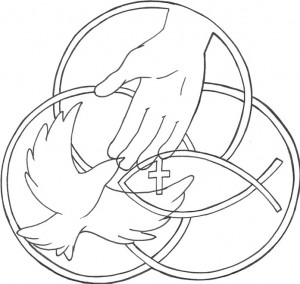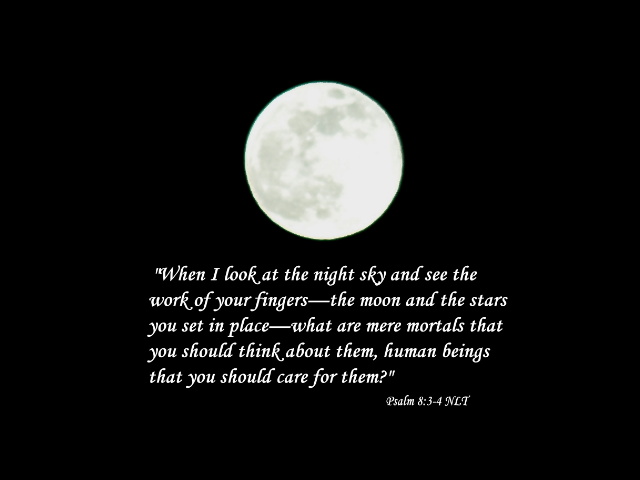Notes on the Notes – May 26, 2013
Theme – Trinity Sunday/Confirmation
Trinity Sunday celebrates the Christian doctrine of the Trinity, the three Persons of God: traditionally the Father, Son, and Holy Spirit. It is one of the few celebrations of the Christian Year that commemorates a doctrine rather than an event or person. Trinity Sunday is celebrated the Sunday after Pentecost, and lasts only one day, which is symbolic of the unity of the Trinity.
Today’s Readings:
Psalm 8, Romans 5:1-5, John 16:12-15
Today’s Music:
“Praise With Joy the World’s Creator” (VU #312) – This new text in praise of the Trinity was written for an anniversary conference of the World Student Christian Federation held at Edinburgh in 1985 by the Iona Community. It brings fresh insights to the understanding of the Godhead. In verse one we offer praise to the Creator, “God of justice, love ad peace…” Verse two celebrates “Christ’s constant presence: friend and stranger, guest and host.” In verse three, the hymn offers praise to the Spirit, “sent among us, liberating truth from pride…” The final verse brings all three together into the Trinity, “calling Christians to embody oneness and diversity.” The music LAUDA ANIMA (PRAISE MY SOUL) was composed by John Goss, organist at St. Paul’s Cathdral in London, in 1868. The tune is most well-known as the tune for the hymn, “Praise, My Soul, the King of Heaven.”
“Follow the Way of the Lord” – Bert Stratton and Lloyd Larson bring us this inspiring call to discipleship.
“On each journey that you take, in every single choice you make, follow the way of the Lord. Climbing up the mountainside, or swimming hard against the strongest tide, Christ is there to be your guide.
Through the vale where shadows fall, Jesus answers when you call. As the Saviour’s path unfolds come and walk the straight and narrow road. Christ will lighten up your load…”
The anthem also quotes the song “I have decided to follow Jesus,” a Christian hymn originating from India. The lyrics are based on the last words of a man in Assam, north-east India, who along with his family was converted to Christianity in the middle of the 19th century through the efforts of a Welsh missionary. Called to renounce his faith by the village chief, the convert declared, “I have decided to follow Jesus.” In response to threats to his family, he continued, “Though no one joins me, still I will follow.” His wife was killed, and he was executed while singing, “The cross before me, the world behind me.” This display of faith is reported to have led to the conversion of the chief and others in the village. The formation of these words into a hymn is attributed to the Indian missionary Sadhu Sundar Singh. The melody is also Indian, and entitled “Assam” after the region where the text originated. An American hymn editor, William Jensen Reynolds, composed an arrangement which was included in the 1959 Assembly Songbook. His version became a regular feature of Billy Graham’s evangelistic meetings in America and elsewhere, spreading its popularity. Due to the lyrics’ explicit focus on the believer’s own commitment, the hymn is cited as a prime example of decision theology, emphasising the human response rather than the action of God in giving faith. This has led to its exclusion from some hymnals. A Lutheran writer noted, “It definitely has a different meaning when we sing it than it did for the person who composed it.”
Watch Jadon Lavik sing a simple classic version of “I Have Decided to Follow Jesus” at http://www.godtube.com/watch/?v=WDWPYWNX
“How Great Thou Art” (VU #238) –
“O Lord my God, when I in awesome wonder consider all the works thy hand hath made…then sings my soul, my Saviour God, to thee, How great thou art!”
The words of this hymn are an echo of the awe felt by the writer of Psalm 8. The hymn How Great Thou Art travelled a long road before it ended up a favorite addition to English hymnals. The original version was a poem written by a Swedish pastor, Reverend Carl Boberg in 1886. In 1933, English missionaries to the Ukraine, Reverend and Mrs. Stuart K. Hine heard the song for the first time, fell in love with it and sang it often throughout their missionary journeys. As they traveled the Carpathian Mountains, the couple was inspired by the incredible beauty to translate the first three verses of the song into English. When WWII broke out in 1939, the Hines returned to England carrying How Great Thou Art to its new home. After the war they wrote the fourth verse and arranged the original Swedish folk tune to be published in English hymnals. In the 1950s, the song was copyrighted and widely published in America, becoming more and more popular. When George Beverly Shea and the Billy Graham gospel choir, directed by Cliff Barrows, began to sing the song at virtually every crusade event, How Great Thou Art soon became one of the most recognized songs around the world. (source: Share Faith website)
“One More Step” – VU #639 – This folk-hymn by Sydney Carter was written in 1971. The words of the hymn emphasize that living a faith-filled life is more about the journey than about having all of the answers. It also speaks of our desire to have God with us as we live and learn.
“One more step along the world I go, from the old things to the new, keep me travelling along with you.
Round the corner of the world I turn, more and more about the world I learn, all the new things that I see – you’ll be looking at along with me.
As I travel through the bad and good, keep me travelling the way I should; where I see no way to go – you’ll be telling me the way, I know.
Give me courage when the world is rough, keep me loving though the world is tough, leap and sing in all I do, keep me travelling along with you.
You are older than the world can be, you are youger than the life in me, ever old and ever new, keep me travelling along with you:
And it’s from the old I travel to the new; keep me travelling along with you.”
Categories: Music Programs, Sunday Bulletin and Announcements, Worship





You must be logged in to post a comment.